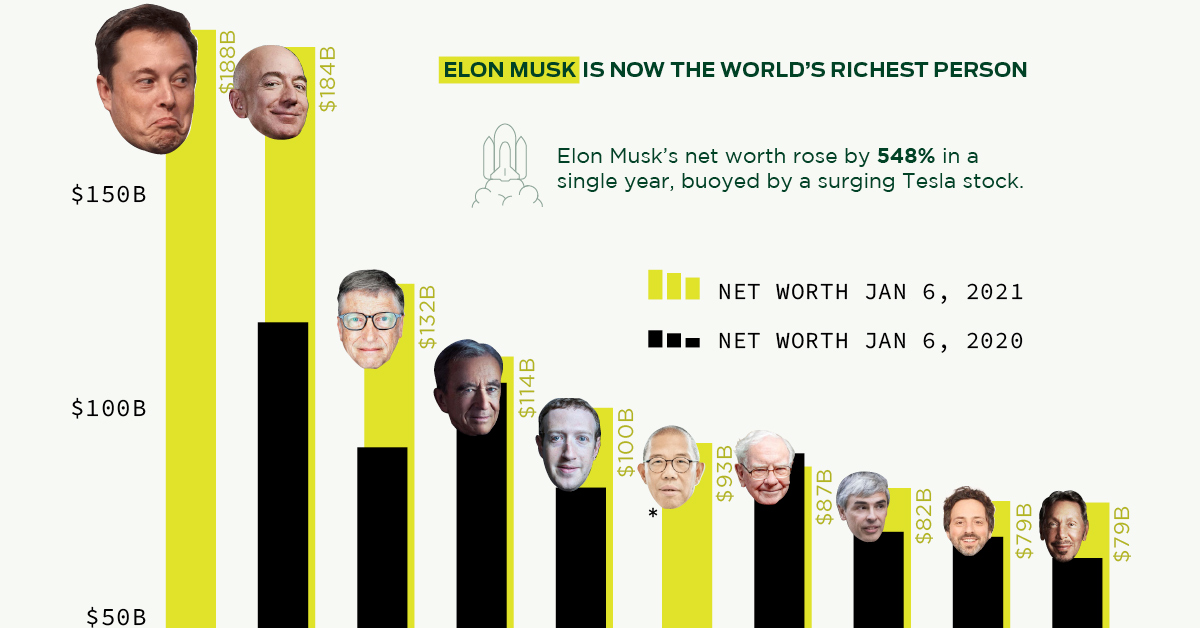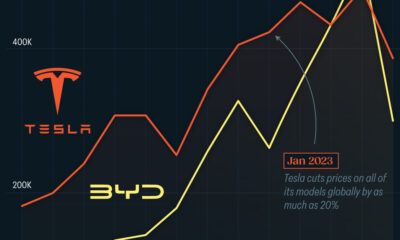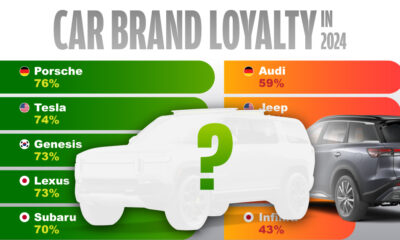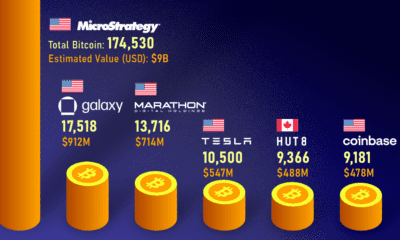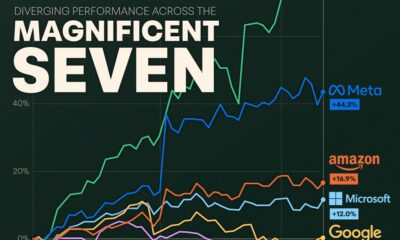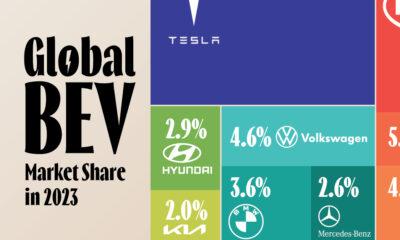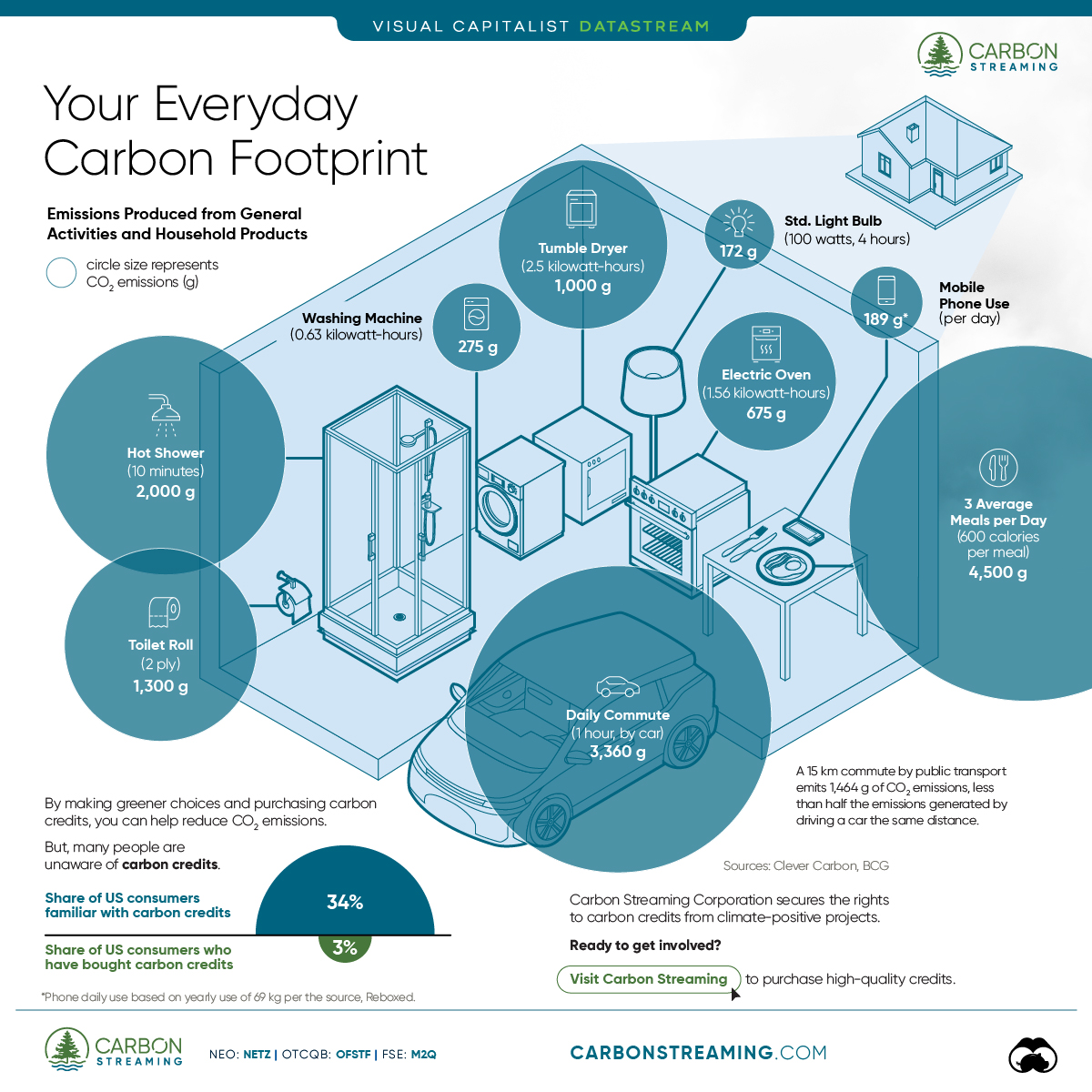Datastream
Elon Musk is the World’s Richest Person in 2021
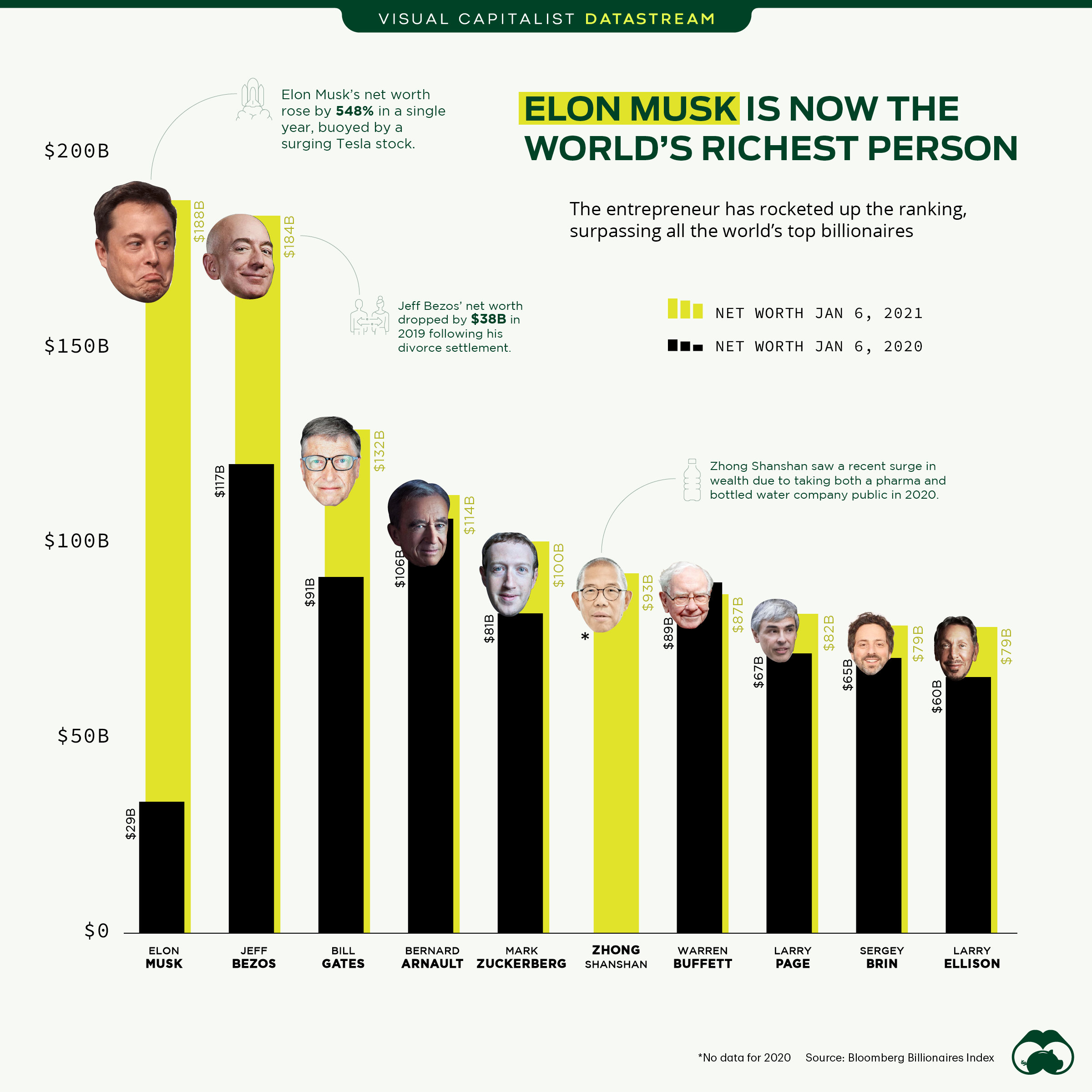
The Briefing
- Just six days into the new year, Elon Musk became the world’s richest person in 2021
- His personal fortune is $188 billion, up 548% from one year ago
- Tesla shares are up 1,030% since the market bottom in 2020
- Elon Musk’s rocketing net worth may be the fastest accumulation of wealth in history
Elon Musk is the World’s Richest Person in 2021
2021 has been touted as a year of change.
And as far the pecking order of global wealth goes, the new year has already delivered. Just six days in, Elon Musk had already lapped Jeff Bezos to become the world’s richest person in 2021 with a personal net worth of $188 billion.
How did this happen so fast?
Since the stock market bottom in March 2020, Tesla shares have skyrocketed by 1,030% to $816 per share. Elon Musk happens to own about 241 million of those shares, putting his wealth accumulation into overdrive in a short period of time.
Pedal to the Medal
The boom in wealth has been so prolific for Musk that he’s left other billionaires in the dust.
One year ago, he wouldn’t have cracked the top 20 list—but with a surge in wealth of 548% since a year ago, he now sits at the top of the heat as the world’s richest person.
| Rank | Billionaire | Wealth (Jan 6, 2021) | One-Year Change |
|---|---|---|---|
| #1 | 🇺🇸 Elon Musk | $188 billion | 548% |
| #2 | 🇺🇸 Jeff Bezos | $184 billion | 57% |
| #3 | 🇺🇸 Bill Gates | $132 billion | 45% |
| #4 | 🇫🇷 Bernard Arnault | $114 billion | 8% |
| #5 | 🇺🇸 Mark Zuckerberg | $100 billion | 23% |
| #6 | 🇨🇳 Zhong Shanshan | $93 billion | n/a |
| #7 | 🇺🇸 Warren Buffett | $87 billion | -2% |
| #8 | 🇺🇸 Larry Page | $82 billion | 22% |
| #9 | 🇺🇸 Sergey Brin | $79 billion | 22% |
| #10 | 🇺🇸 Larry Ellison | $79 billion | 32% |
Is this a temporary bump, or will Elon Musk stay atop the world’s richest person rankings for the rest of 2021?
Really, it all depends on Tesla’s stock price performance—and those that have bet against Tesla in recent years don’t have a great track record to lean on.
That said, price swings can happen in either direction, and if Tesla’s stock finds itself coming down to Earth, it’s possible that Musk’s ranking in the billionaire pecking order could tumble down with it.
>> Liked this? See how Elon Musk built his empire
Where does this data come from?
Source: Bloomberg Billionaire Index
Details: Jan 6th, 2021 data
Notes: Net worth figures on the tracker get updated frequently, so any up-to-date data may not match that of this article.
Datastream
Can You Calculate Your Daily Carbon Footprint?
Discover how the average person’s carbon footprint impacts the environment and learn how carbon credits can offset your carbon footprint.
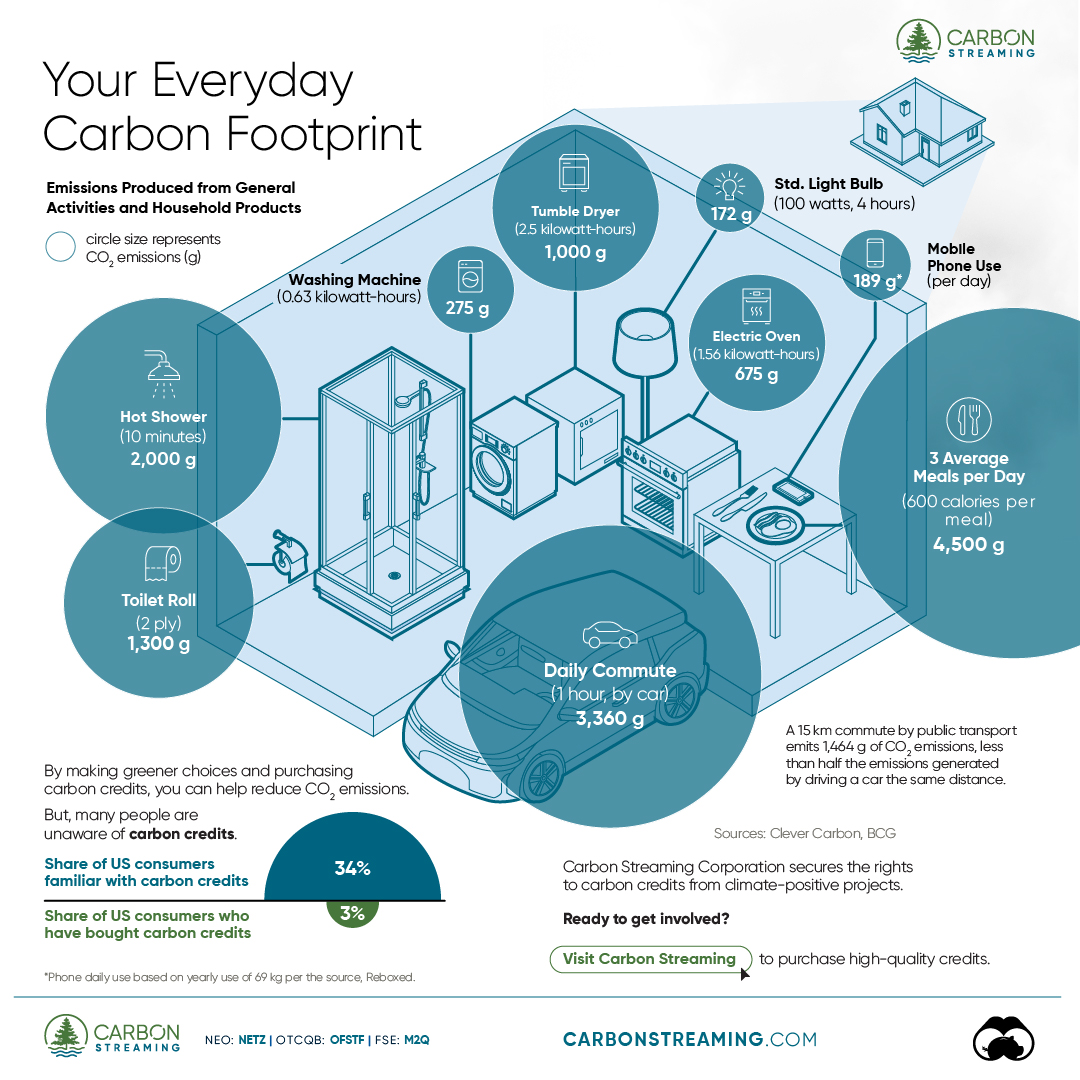
The Briefing
- A person’s carbon footprint is substantial, with activities such as food consumption creating as much as 4,500 g of CO₂ emissions daily.
- By purchasing carbon credits from Carbon Streaming Corporation, you can offset your own emissions and fund positive climate action.
Your Everyday Carbon Footprint
While many large businesses and countries have committed to net-zero goals, it is essential to acknowledge that your everyday activities also contribute to global emissions.
In this graphic, sponsored by Carbon Streaming Corporation, we will explore how the choices we make and the products we use have a profound impact on our carbon footprint.
Carbon Emissions by Activity
Here are some of the daily activities and products of the average person and their carbon footprint, according to Clever Carbon.
| Household Activities & Products | CO2 Emissions (g) |
|---|---|
| 💡 Standard Light Bulb (100 watts, four hours) | 172 g |
| 📱 Mobile Phone Use (195 minutes per day)* | 189 g |
| 👕 Washing Machine (0.63 kWh) | 275 g |
| 🔥 Electric Oven (1.56 kWh) | 675 g |
| ♨️ Tumble Dryer (2.5 kWh) | 1,000 g |
| 🧻 Toilet Roll (2 ply) | 1,300 g |
| 🚿 Hot Shower (10 mins) | 2,000 g |
| 🚙 Daily Commute (one hour, by car) | 3,360 g |
| 🍽️ Average Daily Food Consumption (three meals of 600 calories) | 4,500 g |
| *Phone use based on yearly use of 69kg per the source, Reboxed | |
Your choice of transportation plays a crucial role in determining your carbon footprint. For instance, a 15 km daily commute to work on public transport generates an average of 1,464 g of CO₂ emissions. Compared to 3,360 g—twice the volume for a journey the same length by car.
By opting for more sustainable modes of transport, such as cycling, walking, or public transportation, you can significantly reduce your carbon footprint.
Addressing Your Carbon Footprint
One way to compensate for your emissions is by purchasing high-quality carbon credits.
Carbon credits are used to help fund projects that avoid, reduce or remove CO₂ emissions. This includes nature-based solutions such as reforestation and improved forest management, or technology-based solutions such as the production of biochar and carbon capture and storage (CCS).
While carbon credits offer a potential solution for individuals to help reduce global emissions, public awareness remains a significant challenge. A BCG-Patch survey revealed that only 34% of U.S. consumers are familiar with carbon credits, and only 3% have purchased them in the past.
About Carbon Streaming
By financing the creation or expansion of carbon projects, Carbon Streaming Corporation secures the rights to future carbon credits generated by these sustainable projects. You can then purchase these carbon credits to help fund climate solutions around the world and compensate for your own emissions.
Ready to get involved?
>> Learn more about purchasing carbon credits at Carbon Streaming
-

 Technology2 weeks ago
Technology2 weeks agoRanked: The Most Popular Smartphone Brands in the U.S.
-

 Automotive1 week ago
Automotive1 week agoAlmost Every EV Stock is Down After Q1 2024
-
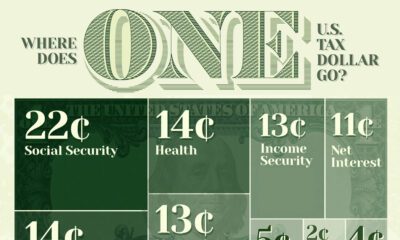
 Money1 week ago
Money1 week agoWhere Does One U.S. Tax Dollar Go?
-

 Green2 weeks ago
Green2 weeks agoRanked: Top Countries by Total Forest Loss Since 2001
-
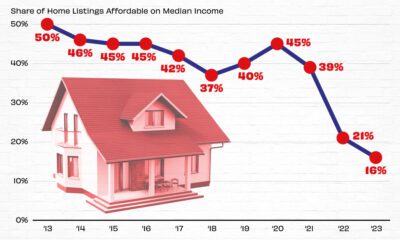
 Real Estate2 weeks ago
Real Estate2 weeks agoVisualizing America’s Shortage of Affordable Homes
-
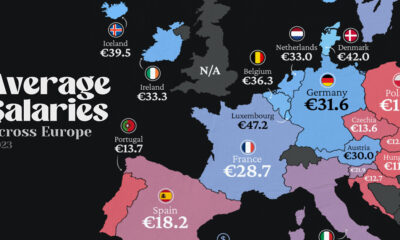
 Maps2 weeks ago
Maps2 weeks agoMapped: Average Wages Across Europe
-
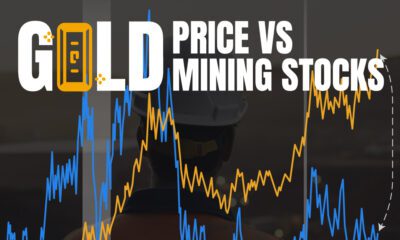
 Mining2 weeks ago
Mining2 weeks agoCharted: The Value Gap Between the Gold Price and Gold Miners
-
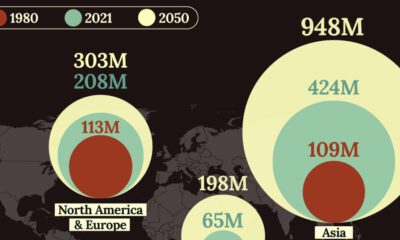
 Demographics2 weeks ago
Demographics2 weeks agoVisualizing the Size of the Global Senior Population

